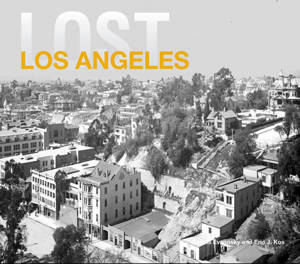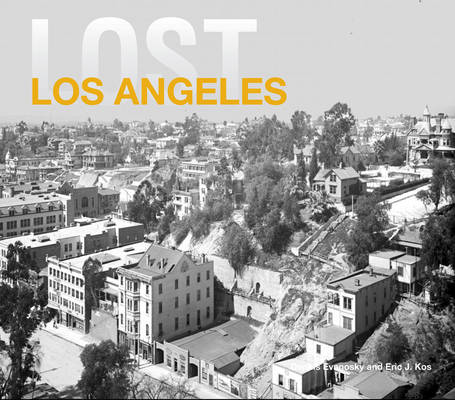
- Retrait gratuit dans votre magasin Club
- 7.000.000 titres dans notre catalogue
- Payer en toute sécurité
- Toujours un magasin près de chez vous
- Retrait gratuit dans votre magasin Club
- 7.000.0000 titres dans notre catalogue
- Payer en toute sécurité
- Toujours un magasin près de chez vous
Description
Lost Los Angeles looks at the rapid changes to the City of Angels from the time of the pueblo up to the twenty-first century.
Los Angeles is less than 150 years old yet in that short time a great deal has been built and torn down. And while most cities suffer the loss of classic old cinemas, Victorian hotels and grand railroad stations, Los Angeles has lost those and much more. It has seen the passing of major industries, film companies, film lots, hills, airfields, piers and a speedway.
In Los Angeles, citrus groves have come and gone, oil derricks have sprung up in their place and been replaced by housing tracts. The movie industry moved in from New York and Chicago, expanded, contracted and then sold off their lots. National radio stations chose the area around Sunset & Vine to build grand art deco studios which were soon vacated. Abbot Kinney's vision of a Venetian suburb was largely filled in after the banks eroded.
There is an extraordinary variety of losses from this unique city: the Ambassador Hotel, Barker Brothers, Beverly Hills Speedway, Chaplin Airfield, the community in Chavez Ravine, The City of Los Angeles train, Church of the Open Door, Fort Moore Hill, the MGM backlots, La Grande Station, Pan Pacific Stadium, Casa Don Vincente Lugo, County Records Building, the Egyptian marquee, Helms and Van de Kamp bakeries, Wrigley Field, Sears, Jayne Mansfield's Pink Palace, the Temple Block and the Zanja Madre.
Spécifications
Parties prenantes
- Auteur(s) :
- Editeur:
Contenu
- Nombre de pages :
- 144
- Langue:
- Anglais
- Collection :
Caractéristiques
- EAN:
- 9781909815599
- Date de parution :
- 01-12-14
- Format:
- Livre relié
- Format numérique:
- Genaaid
- Dimensions :
- 282 mm x 251 mm
- Poids :
- 997 g

Les avis
Nous publions uniquement les avis qui respectent les conditions requises. Consultez nos conditions pour les avis.






